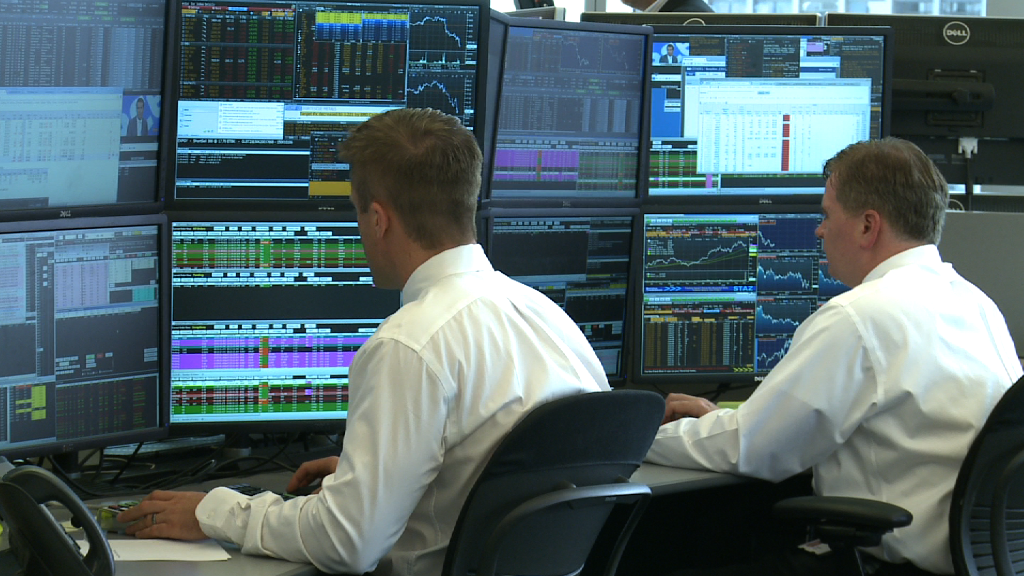
It seems everyone in the investment industry is jumping on the Twitter bandwagon these days in the hope that they'll spot some market-moving data before the rest of the world catches on.
But have you heard of anyone making a success out of this? Probably not.
Enter a new hedge fund that may have found a way to filter out noise created by millions of tweets and trade profitably.
Paul Hawtin, CEO of investment management firm Cayman Atlantic, is launching a fund this month that bases its entire trading strategy on social media posts from Twitter and Facebook (FB).
Hawtin's firm has been working for three years to develop proprietary technology that uses filters and algorithms to scan the 400 million tweets that hit the web each day, distilling the information to an average of five key tweets.
Cayman Atlantic will then make trades in global equities or commodities based on those tweets.
"We are trying to detect events that are breaking out on Twitter before the press, the media and the world are hearing about it," said Hawtin.
The firm makes trades based on both general market sentiment and important one-off events, with the goal of returning at least 12% per year to investors. Hawtin has been modeling the strategy over the past 11 months, making a return of 18%. The Dow Jones Industrial Average has returned about 25% during the same period.
Related: Stop Twitter hackers in their tracks
Hawtin said his analytics tools can spot whether sentiment towards a stock or market is deteriorating, allowing him to take a short position well in advance of a broader move by other investors.
The system also hunts down tweets about critical, market-moving events so traders can take action. Even if a tweet turns out to be wrong, Hawtin still sees an opportunity to make money.
When the Associated Press Twitter account was hacked to issue a false tweet about an explosion at the White House, Hawtin was able to take advantage of the sharp fall in stock markets that followed.
"When our system notified us of the AP tweet I was doubtful of its authenticity," he said.
"However, because it came from an approved handle with over 2 million followers... I knew it would have an impact on the markets albeit only for a few minutes until AP officially removed and corrected it."

The new fund, which operates from London and the Cayman Islands, is Hawtin's second Twitter-focused fund. The first, launched by his firm Derwent Capital Markets in July 2011, shut after a month due to low demand and tough market conditions.
Related: Should Bloomberg be afraid of Twitter?
Hawtin said the new fund is structured differently, offering improved liquidity and better analytics technology.
Investors will have to cough up at least £100,000 ($150,000) to open an account, and the fund can only start accepting deposits after getting a final nod of approval from the Cayman Islands Monetary Authority, which is expected later this month.
For those who are interested in using Twitter and Facebook to make their own trades, other companies such as Dataminr offer social media filtering services for a fee.
Hawtin said his fund was inspired by an academic paper by professor Johan Bollen from Indiana University that showed how general sentiment on Twitter could be used to predict shifts in the stock market with over 80% accuracy.


